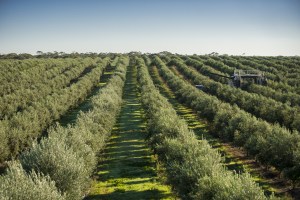
Australia’s manufacturing industry is one of the nation’s most energy-intensive. It accounts for close to one quarter of Australia’s total energy consumption and around 40 per cent of natural gas consumption.
Historically, manufacturers have benefitted from low energy costs but in recent years, costs have increased. According to the Australian Energy Market Operator’s (AEMO) first quarterly report of 2019, prices are at a record high. While this has impacted manufacturers’ bottom-lines, energy still has the potential to be a competitive advantage.
Australia’s shifting energy market is creating new opportunities for manufacturers to generate savings in the energy category. From taking on portions of Australia’s growing pipeline of renewables to investing in future-ready energy strategies that leverage market-ready tech to deliver savings.
If manufacturers are able to engage with how they use energy, they can move beyond being simply price takers.
Plan for the long-term
The energy market is changing. Coal-fired generation is leaving the market and being replaced by renewable energy. This is pushing new retailers to deliver more innovative offerings, and impacting how users engage with energy.
At the fore of this shift is the rise of the Power Purchase Agreement (PPA). First pioneered by large corporates, like Telstra and Coca-Cola Amatil, PPAs allow businesses to push past the traditional retail model and lock in long-term agreements directly with renewable generators.
This model, when treated as more than just a financial tool, enables manufacturers to contract energy directly from wind and solar plants, supporting Australia’s development of renewable energy. It is a low-cost strategy that reaps the most benefits when implemented for a long-term period, and allows businesses to fulfil sustainability commitments.
For one leading food and beverage manufacturer, the decision to enter a PPA delivered savings of 18 percent on its energy costs in 2018, compared to what it would’ve paid on a standard fixed-rate retail contract.
Knowing the hows and whens
Alone, PPAs deliver low-cost renewable energy but if treated as part of a broader energy strategy, create more opportunities on price.
The concept of peak and off-peak is familiar to many energy users - most fixed-rate contracts charge based on this pricing model. But these contracts don’t give transparency into the actual highs and lows of the market, which shift every 30 minutes.
Manufacturers that buy from the wholesale market should look at how and when they use power, to maximise the opportunities to tap into low-cost pricing periods.
Demand management, specifically load shifting, encourages manufacturers to move operations in-line with the highs and lows of the market. This can be as simple as shifting energy intensive processes to earlier in the day to reduce consumption during the more expensive late afternoon and early evening period.
These small daily movements, which can account for just a handful of hours over a year, drive down total energy expenditure. Aside from the cost-benefit, demand management connects manufacturers to how they use energy, allowing them to uncover potential areas of improvement.
For businesses, especially those buying power on the wholesale spot market, it can deliver savings of up to 33.3 per cent on energy costs, in addition to savings generated by a PPA.
Defying the economy
The time is right for manufacturers to act on energy, and the market is ready with tools to drive them.
Taking a holistic view of energy that encompasses how it is sourced, managed and consumed is the avenue that will power a low-cost energy future for Australia’s manufacturers. Once manufacturers are able to do this, it becomes clear where energy expenditure lies and its impact, including the all-important end cost to the customer.






